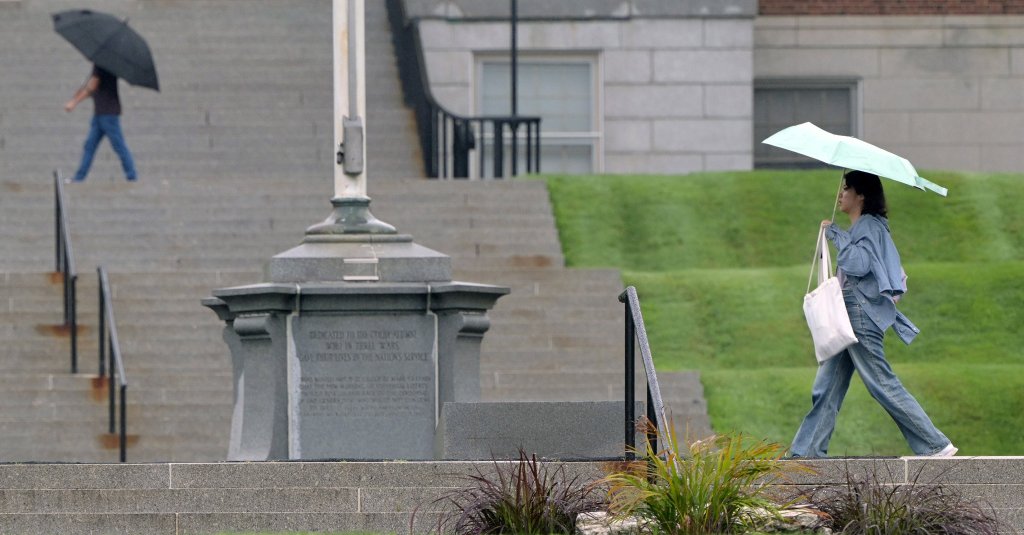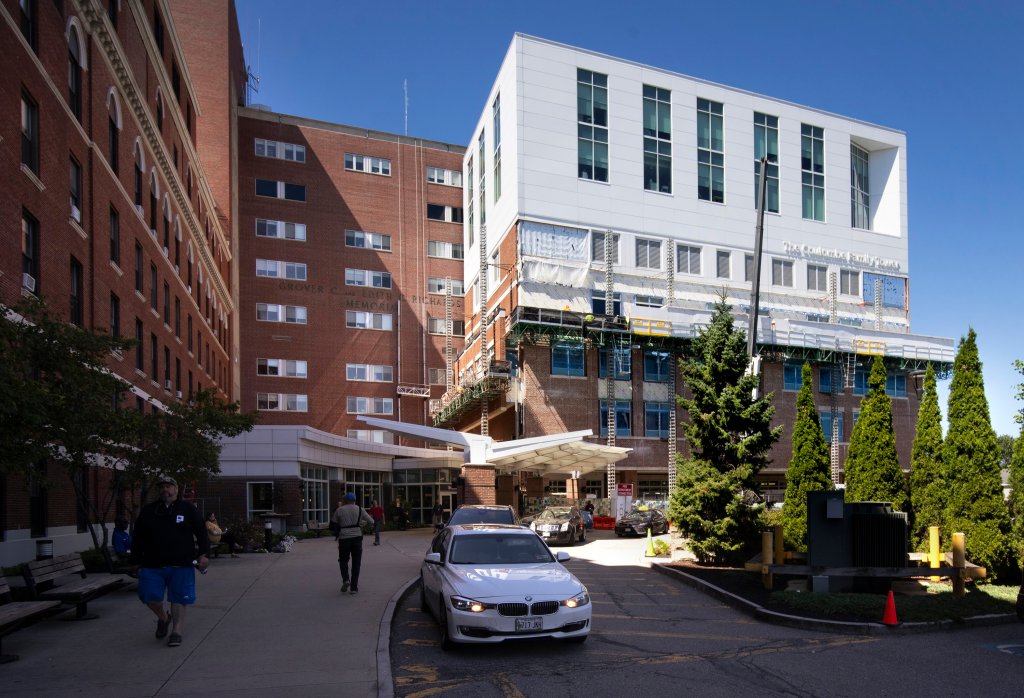Maine employers who count on H-1B visas to fill critical professional positions are trying to understand the impact of a new $100,000 fee imposed by President Trump and hoping they qualify for an exemption.
As many as 65,000 H-1B visas are granted nationwide each year for workers with special skills and at least a bachelor’s degree or equivalent, plus 20,000 for foreign professionals with a master’s degree or doctorate from a U.S. college or university. Before Sept. 21, applying for an H-1B visa cost $2,000 to $5,000, depending on company size.
Trump imposed the one-time fee on new H-1B petitions because he said the program “has been deliberately exploited to replace, rather than supplement, American workers with lower-paid, lower-skilled labor.”
“The large-scale replacement of American workers through systemic abuse of the program has undermined both our economic and national security,” Trump said in his proclamation.
Business and immigrant advocates say that’s not true and worry that the $100,000 fee may hurt smaller businesses especially hard.
“The Maine State Chamber of Commerce is concerned that a flat fee of $100,000 on each new petition may be disproportionately challenging for entrepreneurs, research institutions and smaller companies to justify,” said Patrick Woodcock, president and CEO.
The $100,000 fee also may limit the ability of Maine businesses to expand, innovate and experience economic growth, Woodcock said in an emailed statement.
He noted that the number of H-1B visas issued to Maine employers has long been among the lowest in the nation — Maine was granted 314 H-1B visas in 2024, while California, at the top of the list, received 78,053, according to U.S. Citizenship and Immigration Services.
Still, he said, the economic benefit of the H-1B visa program is significant because it allows employers to efficiently add workers with specific skills that aren’t readily available in Maine.
“While the vast amount of talent is developed through our own educational system, Maine companies, research institutions, hospitals and entrepreneurs utilize the H-1B visa program to integrate specialized skills that are unavailable locally,” Woodcock said.
Moreover, employers already must attest in petitioning for H-1B visas that hiring foreign workers won’t hurt the wages or working conditions of U.S. workers in similar jobs, according to the American Immigration Council. And demand for workers often exceeds supply in industries that typically use the program, such as technology and health care, the council said.
FEE COULD HURT SMALL BUSINESSES
While big tech companies may be able to cover the $100,000 fee — Amazon, a $2.3 trillion global enterprise with 1.5 million employees, received 9,257 H-1B visas in 2024 and 10,044 so far this year — the impact on smaller firms and startups could be devastating.
The H-1B visa fee hike is the latest government policy to create an uneven playing field for small business, said John Arensmeyer, founder and CEO of the Small Business Majority, a Washington, D.C.-based nonprofit linking over 85,000 small businesses and 1,500 business and community organizations.
“Most small businesses earn less than $100,000 per year, so a six-figure fee is a non-starter for the majority of small firms,” Arensmeyer said in an emailed statement. “Meanwhile, the largest corporations won’t even blink at this cost, giving them an even greater advantage over small businesses when it comes to recruiting top talent.”
Arensmeyer said policymakers should be looking for ways to address immigration concerns without disadvantaging small businesses and locking them out of the labor market.
“Especially at this time, when small firms are already struggling under the weight of tariffs and other rising costs,” he said.
The Jackson Laboratory in Bar Harbor — Maine’s top recipient for several years, with 37 H-1B visas granted in 2024 and 28 so far this year — didn’t respond to a request for an interview or statement on the $100,000 fee.
Other top H-1B visa recipients in Maine that didn’t respond include Rite Pros Inc., a software developer and consultant in Portland, Golden Software Solutions in South Portland, Idexx in Westbrook and Wex in Portland.
Another top recipient in recent years, Tyler Technologies, a global firm with offices in Augusta, Orono, Yarmouth and Falmouth, replied that it was unable to respond.
HIGHER ED COULD TAKE A HIT
The University of Maine System currently has about 50 H-1B visa holders employed across its seven universities, said spokesperson Samantha Warren.
“We are still reviewing the potential impacts of the president’s proclamation on our public universities,” Warren said in an emailed statement. “It is highly unlikely our underfunded public institutions would be able to pay the proposed new fee.”
System officials hope to be exempted from the $100,000 fee as outlined in Trump’s proclamation. It states that the secretary of homeland security has the discretion to determine if issuing H-1B visas “is in the national interest and does not pose a threat to the security or welfare of the United States.”
“(That) is true for the foreign professionals we currently employ or would seek to in the future,” Warren said.
Warren noted that the UMaine system recruits top faculty and staff to prepare students for career success and to produce research-driven innovations that strengthen the state and national economies and global leadership.
“In nearly all cases, through our competitive, merit-based hiring process, we are able to fill positions with world-class American educators and researchers, including many from Maine,” Warren said.
On occasion, however, the most qualified candidate for a highly specialized role may be a foreign professional, she said.
“The H-1B program has long allowed those individuals to contribute their expertise to our public universities in ways that benefit our students, our state, and ultimately our nation,” she said.

Colby College, which was granted 14 H-1B visas in 2024 and 10 so far this year, emailed a statement that it “is in the process of trying to understand how the new H-1B visa rules will impact higher education as well as the college’s international faculty and staff, and will fully comply with all requirements.”
Bowdoin College, which received 12 H-1B visas in 2024 and 5 so far this year, said it was unable to respond to a request for an interview or statement in time for this story.
HOSPITALS COUNT ON H-1B VISAS
Northern Light Health currently has 84 H-1B holder across its nine hospitals and practices, including Eastern Maine Medical Center in Bangor and Mercy Hospital in Portland.

“There is a good chance, due to our nonprofit status, that this new H1-B visa fee may not affect us,” said spokesperson Karen Sanborn. “We are awaiting clarification. At this time, we don’t have enough information, and it would be premature for us to provide comment. We hope to know more in the coming weeks.”
MaineHealth currently has 21 care team members with H-1B visas across its nine hospitals and affiliated practices, including Maine Medical Center in Portland.
How the $100,000 fee will impact MaineHealth operations remains to be seen, said spokesman John Porter.
“MaineHealth continues to assess the impact of the president’s executive order to require new H-1B visa applicants to pay a $100,000 fee,” Porter said in an emailed statement. “H-1B visas play a critical role in our communities as rural hospitals across Maine rely on skilled workers from other countries to support access to care where local providers are scarce.”
Porter said MaineHealth officials are hopeful that the federal government will exempt health care personnel from the fee, with an understanding of the financial challenges that Maine’s hospitals already face and the value these health care workers provide to rural communities.
